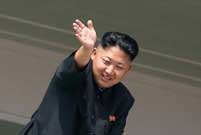Edited and translated by Liang Jun, People's Daily Online
Chinese President Xi Jinping attended the eighth G20 summit, in St. Petersburg, Russia from 5 to 6 September. As a member of the G20, China has always attached importance to the continuing development of the mechanism. The Group of Twenty is one of the four multilateral platforms China supports, as confirmed in the report to the 18th National Congress of the Communist Party of China (CPC).
During the summit, President Xi Jinping delivered a keynote speech whose theme was to "jointly safeguard and develop an open world economy" and transfer Chinese confidence to the rest of the world.
China's economic slowdown is the result of a process of restructuring which will benefit the country in the long haul. Despite this, China's growth still ranks first among the members of the G20, and is much higher than that of the developed economies. China remains the recovery engine of the international economy.
For their own interests, however, some countries hope China to quicken its economy growth, or are unwilling to acknowledge China's contribution to the global economic growth; they even try to badmouth China from time to time.
The "China Collapse" theory has been doing the rounds for some time. After the drastic changes in the Soviet Union and Eastern Europe in the 1990s, much of the West took the view that China would be "conquered by Western capitalism", as highlighted by Francis Fukuyama's essay "The End of History". With the continuous improvement of the socialist system and further implementation of the reform and opening-up process, the Chinese economy and its financial market became a focus of criticism. During the Asian financial crisis in 1997 and the ongoing global crisis triggered by the US subprime mortgage crisis in 2008, doubts grew over China's development pattern and future economic prospects.
Together with the "China Threat" theory", the "China collapse" theory" is a product of the Cold War mentality. Some Western people, with a deep-seated fear and suspicion of China, do not want to see a country achieve success without following the pattern of Western democracy. Others hope to provoke financial volatility in China, with a view to making a profit from it.
President's Xi's speech during the G20 summit will encourage other member states to cooperate with China and strengthen China's power and influence in the process of developing the international economy.
At present, Syria is shrouded by the threat of the planned U.S.-led strike. Obama and Putin will not meet during the summit, so China's role is all the more important.
China has always stressed that a political solution is the only way forward in Syria, and that any action taken by the international community should comply with the aims of the UN Charter and the basic norms governing international relations. China has always been a responsible country and plays the role of "stabilizer" in international relations. China calls on other countries to work together to shoulder the responsibilities of maintaining world peace and stability.
A prosperous China will take on further international responsibilities.
The author is Xiaohui, assistant research fellow from the China Institute of International Studies.
 DPRK holds military parade to mark 65th founding anniv.
DPRK holds military parade to mark 65th founding anniv. Highlights of MAKS 2013 Int'l Aviation and Space Show
Highlights of MAKS 2013 Int'l Aviation and Space Show  10th China-ASEAN Expo opens in Nanning
10th China-ASEAN Expo opens in Nanning Eagle Boy takes to sky to break another record
Eagle Boy takes to sky to break another record 12-year-old boy becomes pillar of the family
12-year-old boy becomes pillar of the family Eye-gouged boy receives blind rehabilitation in Shanxi
Eye-gouged boy receives blind rehabilitation in Shanxi Top 10 naked hotels in the world
Top 10 naked hotels in the world The most gorgeous Chinese women in the eyes of foreigners
The most gorgeous Chinese women in the eyes of foreigners A collection of bizarre rooftop buildings around China
A collection of bizarre rooftop buildings around China Residences of the royal house of Savoy
Residences of the royal house of Savoy China's frigate 'Bengbu'in fire training
China's frigate 'Bengbu'in fire training Fresh students 'forced' to register in university independently
Fresh students 'forced' to register in university independently 2013 Taiwan Int'l Tourism Expo kicks off in Taipei
2013 Taiwan Int'l Tourism Expo kicks off in Taipei Photo story: Take a gap year
Photo story: Take a gap year Nokia's Global Headquarters: visiting a declining empire
Nokia's Global Headquarters: visiting a declining empireDay|Week|Month